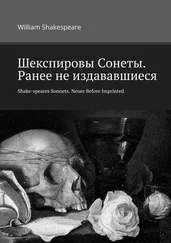Tush, tush, man, never fleer and jest at me;
I speak not like a dotard nor a fool,
As under privilege of age to brag
What I have done being young, or what would do
Were I not old. Know, Claudio, to thy head,
Thou hast so wrong’d mine innocent child and me
That I am forc’d to lay my reverence by,
And with grey hairs and bruise of many days,
Do challenge thee to trial of a man.
I say thou hast belied mine innocent child!
Thy slander hath gone through and through her heart,
And she lies buried with her ancestors—
O, in a tomb where never scandal slept,
Save this of hers, fram’d by thy villainy!
Claud.
My villainy?
Leon.
Thine, Claudio, thine, I say.
D. Pedro.
You say not right, old man.
Leon.
My lord, my lord,
I’ll prove it on his body, if he dare,
Despite his nice fence and his active practice,
His May of youth and bloom of lustihood.
Claud.
Away, I will not have to do with you.
Leon.
Canst thou so daff me? Thou hast kill’d my child.
If thou kill’st me, boy, thou shalt kill a man.
Ant.
He shall kill two of us, and men indeed;
But that’s no matter, let him kill one first.
Win me and wear me, let him answer me.
Come follow me, boy; come, sir boy, come follow me.
Sir boy, I’ll whip you from your foining fence,
Nay, as I am a gentleman, I will.
Leon.
Brother—
Ant.
Content yourself. God knows I lov’d my niece,
And she is dead, slander’d to death by villains,
That dare as well answer a man indeed
As I dare take a serpent by the tongue.
Boys, apes, braggarts, Jacks, milksops!
Leon.
Brother Anthony—
Ant.
Hold you content. What, man! I know them, yea,
And what they weigh, even to the utmost scruple—
Scambling, outfacing, fashion-monging boys,
That lie and cog and flout, deprave and slander,
Go anticly, and show outward hideousness,
And speak [off] half a dozen dang’rous words,
How they might hurt their enemies—if they durst—
And this is all.
Leon.
But, brother Anthony—
Ant.
Come, ’tis no matter;
Do not you meddle, let me deal in this.
D. Pedro.
Gentlemen both, we will not wake your patience.
My heart is sorry for your daughter’s death;
But on my honor she was charg’d with nothing
But what was true, and very full of proof.
Leon.
My lord, my lord—
D. Pedro.
I will not hear you.
Leon.
No? Come, brother, away! I will be heard.
Ant.
And shall, or some of us will smart for it.
Exeunt ambo [Leonato and Antonio].
Enter Benedick.
D. Pedro. See, see, here comes the man we went to seek.
Claud. Now, signior, what news?
Bene. Good day, my lord.
D. Pedro. Welcome, signior, you are almost come to part almost a fray.
Claud. We had lik’d to have had our two noses snapp’d off with two old men without teeth.
D. Pedro. Leonato and his brother. What think’st thou? Had we fought, I doubt we should have been too young for them.
Bene. In a false quarrel there is no true valor. I came to seek you both.
Claud. We have been up and down to seek thee, for we are high-proof melancholy, and would fain have it beaten away. Wilt thou use thy wit?
Bene. It is in my scabbard, shall I draw it?
D. Pedro. Dost thou wear thy wit by thy side?
Claud. Never any did so, though very many have been beside their wit. I will bid thee draw, as we do the minstrels, draw to pleasure us.
D. Pedro. As I am an honest man, he looks pale. Art thou sick, or angry?
Claud. What, courage, man! What though care kill’d a cat, thou hast mettle enough in thee to kill care.
Bene. Sir, I shall meet your wit in the career, and you charge it against me. I pray you choose another subject.
Claud. Nay then give him another staff, this last was broke cross.
D. Pedro. By this light, he changes more and more. I think he be angry indeed.
Claud. If he be, he knows how to turn his girdle.
Bene. Shall I speak a word in your ear?
Claud. God bless me from a challenge!
Bene. [Aside to Claudio.] You are a villain. I jest not; I will make it good how you dare, with what you dare, and when you dare. Do me right; or I will protest your cowardice. You have kill’d a sweet lady, and her death shall fall heavy on you. Let me hear from you.
Claud. Well, I will meet you, so I may have good cheer.
D. Pedro. What, a feast, a feast?
Claud. I’ faith, I thank him, he hath bid me to a calve’s-head and a capon, the which if I do not carve most curiously, say my knife’s naught. Shall I not find a woodcock too?
Bene. Sir, your wit ambles well, it goes easily.
D. Pedro. I’ll tell thee how Beatrice prais’d thy wit the other day. I said thou hadst a fine wit. “True,” said she, “a fine little one.” “No,” said I, “a great wit.” “Right,” says she, “a great gross one.” “Nay,” said I, “a good wit.” “Just,” said she, “it hurts nobody.” “Nay,” said I, “the gentleman is wise.” “Certain,” said she, “a wise gentleman.” “Nay,” said I, “he hath the tongues.” “That I believe,” said she, “for he swore a thing to me on Monday night, which he forswore on Tuesday morning. There’s a double tongue, there’s two tongues.” Thus did she an hour together trans-shape thy particular virtues, yet at last she concluded with a sigh, thou wast the proper’st man in Italy.
Claud. For the which she wept heartily and said she car’d not.
D. Pedro. Yea, that she did, but yet for all that, and if she did not hate him deadly, she would love him dearly. The old man’s daughter told us all.
Claud. All, all, and, moreover, God saw him when he was hid in the garden.
D. Pedro. But when shall we set the savage bull’s horns on the sensible Benedick’s head?
Claud. Yea, and text underneath, “Here dwells Benedick the married man”?
Bene. Fare you well, boy, you know my mind. I will leave you now to your gossip-like humor. You break jests as braggards do their blades, which, God be thank’d, hurt not. My lord, for your many courtesies I thank you. I must discontinue your company. Your brother the bastard is fled from Messina. You have among you kill’d a sweet and innocent lady. For my Lord Lack-beard there, he and I shall meet, and till then peace be with him.
[Exit.]
D. Pedro. He is in earnest.
Claud. In most profound earnest, and I’ll warrant you, for the love of Beatrice.
D. Pedro. And hath challeng’d thee?
Claud. Most sincerely.
D. Pedro. What a pretty thing man is when he goes in his doublet and hose and leaves off his wit!
Enter Constables [Dogberry and Verges, and the Watch with] Conrade and Borachio.
Claud. He is then a giant to an ape, but then is an ape a doctor to such a man.
D. Pedro. But soft you, let me be. Pluck up, my heart, and be sad. Did he not say my brother was fled?
Dog. Come you, sir. If justice cannot tame you, she shall ne’er weigh more reasons in her balance. Nay, and you be a cursing hypocrite once, you must be look’d to.
Читать дальше












